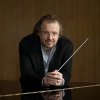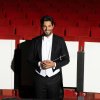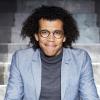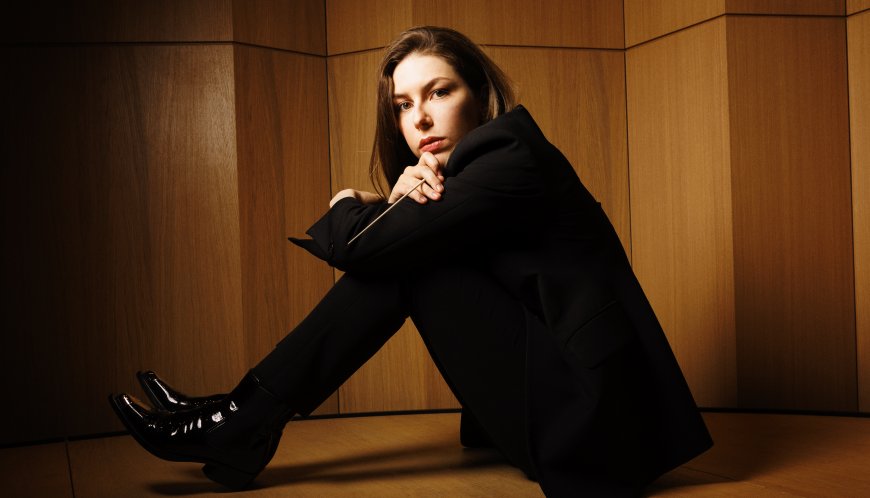
Only 29, Anna Handler might be one of the busiest maestras on the world’s stages — which helps explain a striking detail on her upcoming schedule.
Although the German Colombian conductor is slated to make her Hollywood Bowl debut with the Los Angeles Philharmonic on July 31, this won’t be her first time leading the ensemble.
A Dudamel Fellow with the orchestra two seasons ago, Handler first took the podium with the LA Phil in Walt Disney Concert Hall in 2024 — the same year she became assistant conductor of the Boston Symphony Orchestra. She’s been on a musical tear since earning her master’s degree in May 2023 from The Juilliard School, where she was the first conducting student to receive the prestigious Kovner Fellowship.
Born in Munich, Handler initially studied piano and conducting at conservatory there before continuing her training at the University of Music Franz Liszt Weimar, the Accademia Pianistica Internazionale di Imola, and the Folkwang University of the Arts.
She founded Enigma Classica in 2019 and, with that ensemble, has worked with acclaimed soloists and shown a keen interest in how technology can enhance live music-making. In 2022, she received the Rising Star Award from the European Cultural Foundation Europamusicale, and earlier this year, she was appointed kapellmeister of the Deutsche Oper Berlin, a position she’s set to begin this fall.
SF Classical Voice reached Handler by phone from Tanglewood, where she was teaching a class and is scheduled to make her debut in August. We discussed, among other topics, her relationship with the LA Phil and how a conductor and orchestra can best connect. This conversation has been edited for length and clarity.
Your rise in the classical world has been next level. Was there music in your family, and when did you know you wanted to be a conductor?
My parents are not musicians. They’re engineers and obsessed with math. My sister and I always sang at home. It was a very genuine, natural approach to music. And there’s [video] footage of me at 10 [where] you can see me singing [and] my hands are open, as if they could touch the sound.
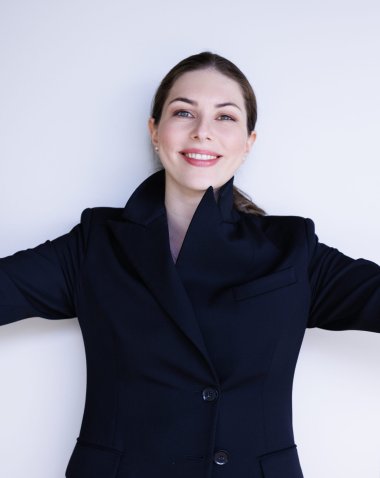
That’s very innate — that my hands could not stop moving and connecting with the sound I was producing. My hands are a very expressive tool for me, even today.
We kept singing and became instrumentalists — my sister Laura is a violinist — and thankfully, we got acquainted with better and better teachers. Our parents supported us, and one competition led to another. At the end, I found myself studying this profession [conducting].
What makes for good chemistry between a conductor and an orchestra?
[It’s like] good chemistry between two people who meet for the first time. You look into someone’s eyes, you listen to what they have to say, and you try to understand their values through their voice, their beliefs. If [the experience] resonates with you, you spend more time with each other.
It starts with listening. [As a conductor, you have] to become open to different world views, different ways of making music — what resonates with you deeply that you didn’t even think of. Because music is so spiritual, you open your deepest feelings, your soul. If you don’t want to be vulnerable, this profession is hard. When people believe you, they can connect.
What was it like being a Dudamel Fellow?
It was a wonderful experience. My mother’s from Colombia, so there’s the Spanish influence, the Latino influence, [I had] growing up in terms of mentality, enthusiasm, joy. I could really relate to Gustavo’s music-making, and it’s something he shares with the LA Phil. I looked up to him during my time as a fellow. I [also played] chamber music with musicians in the orchestra [and] connected with them on a human level.
My motto is: Don’t show up to prove something, show up to improve. I came with this attitude [of wanting] to learn, to absorb, to integrate.
Let’s talk about your Bowl program. You’re conducting the world premiere of Eunike Tanzil’s Ode to the City of Dreams, Mozart’s Concerto for Flute and Harp, and Richard Strauss’s Also sprach Zarathustra, inspired by Friedrich Nietzsche. Did you choose these works?
I chose the program, yes. Eunike Tanzil [and I] studied together at Juilliard. She’s an Indonesian composer based in Los Angeles now, [and her Ode is] a tribute to [the city], a place where dreams take root and friendships flourish, [even] in the wake of the [wildfires] of 2025. This piece seeks to rekindle hope and resilience and reminds us [that] we will rise again. It’s four minutes long and sounds like a fanfare inspired by John Williams.
[For programming a concerto], I wanted two soloists from the orchestra, [which has] so many incredible musicians, like [harpist] Emmanuel Ceysson and [flutist] Denis Bouriakov. I wanted to showcase them, especially because I know them already. When you don’t have too much rehearsal time, working with people you know is [helpful]. And [Mozart’s] second movement is a melody people can take home.
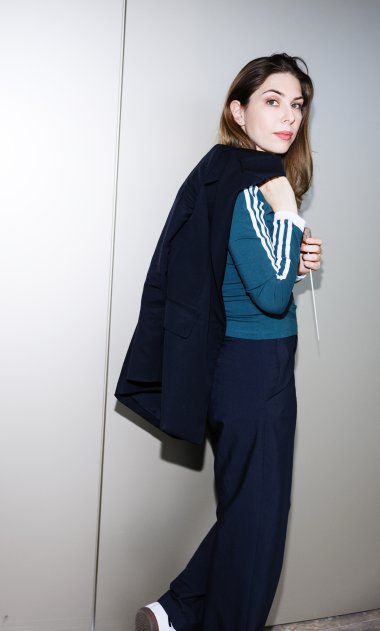
For the Strauss, it’s a dream come true [and] resonates a lot with me. Zarathustra was an [ancient Zoroastrian] prophet [who], when he was 30, decided to go into the mountains for solitude to think. Nietzsche used this prophet to convey his own thoughts about life. He was exactly my age when he started thinking about this. I could have chosen some Tchaikovsky, but, for me, this piece has such a relationship to where I am now in my life. I couldn’t think of anything better.
Tell me about your ensemble Enigma Classica.
Enigma stands for the riddle that lives inside of every musical piece. Decoding that riddle is something interesting to me. What is happening harmonically, melodically, rhythmically? For a long time, I saw these [components] as little creatures that you accompany on a journey. How do they develop?
I’m [also] looking at [working with] the MIT Media Lab because I’m really interested in the intersection between technology and music. How can we gain a broader audience? How can I bridge the gap to find a way to classical music?
What it’s like being able to collaborate with your sister on violin?
My sister is my biggest ally, and I’ve been making music with her [since we were children]. I think that’s a privilege — that I have someone so honest on my side. It’s a huge advantage to be on a team like that.
Has being a woman been any kind of obstacle for you as a conductor?
I would say both yes and no. I think the more we force ourselves to leave stereotypes behind and focus on the human in front of us and what they have to say and how they deliver it, the less important gender becomes, the more important content becomes.
In the past, I had moments [where] if I wasn’t given the same amount of love, attention, or care [as someone else], then I looked for another door. If one closes, another must be open. That’s the lesson for me. I don’t focus on the closed door. I focus on the open door and have the courage to get out and find another environment. Hopefully, it’s always possible.


